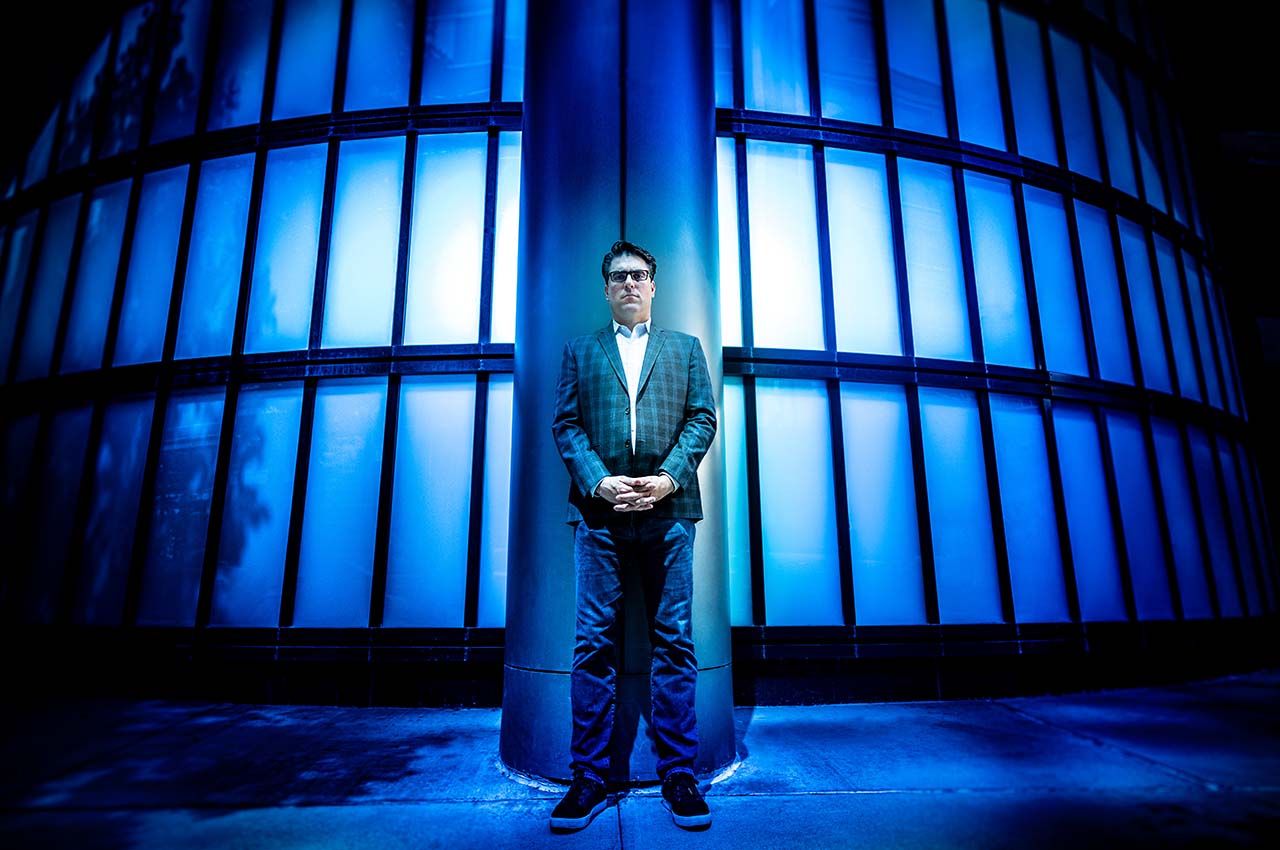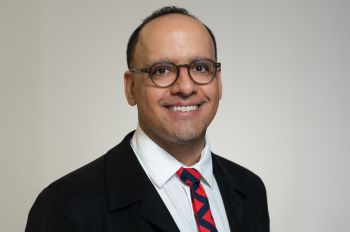Chicago-Kent Law Professor Delivers Keynote Address at Royal Society AI Conference in London

“I recently heard of a saying in India, something along the lines of, ‘Your grandfather has a dispute, which will be ultimately settled by your grandson,’” says Chicago-Kent College of Law Professor Daniel Martin Katz. “It’s hard to talk about the rule of law in a context where people wait decades to get solutions for their problems.”
A recent story highlighted that India had more than 50 million criminal and civil cases pending and it would take 300 years to clear the country's judicial backlog. It’s not just in India, though; courts around the world are facing backlogs.
The judicial backlog is just one of the areas of civic life that Katz believes that artificial intelligence will begin to address in the next few years.
“People get concerned when you think about algorithms in the justice system, and I do not think criminal law is probably the place for all of this,” says Katz, who is also the director of Chicago-Kent’s Law Lab. “But in commercial disputes, people are basically trying to get out of the traditional judicial system—and into ADR or other alternatives—because it takes forever and it’s very expensive.”
The way that AI will change the justice system in the coming years is the focus of Katz’s research. In 2024 he published a paper titled, “GPT-4 Passes the Bar Exam,” which was the most downloaded and cited paper of the year in the Philosophical Transactions of the Royal Society A. The paper was published with co-authors Michael James Bommarito, Shang Gao, and Pablo Arredondo.
Following the success of that paper, Katz was invited to give the keynote speech at the Royal Society’s conference on AI and the Law in London on September 23, 2025. The Royal Society is an independent scientific academy based in the United Kingdom, and it is the oldest scientific academy in continuous existence in the world.
“I think that people are concerned about what AI is going to mean not only for the justice sector specifically, but also for society more broadly,” says Katz. “I think there’s been concerns about economic disruption when we think that there are these jobs, these tasks that a computer can kind of do and is likely to be able to expand its mandate.”
However, Katz prefers to focus on the way AI can increase access to justice and to help people re-engage with the court system in new, more efficient ways.
“I do think we have this problem in the justice sector that the scale of the number of disputes and issues, it sort of exceeds the public sector’s resources,” he says.
“The UK post-Brexit has been very focused on maintaining its position economically with respect to London being a central financial and legal hub of the globe,” he says. “What England wants to do is be the place where you take your disputes, and there’s concern in the post-Brexit world that these things will go to other global dispute resolution hubs.”
Katz’s two most recent papers, titled “Software Engineering Meets Legal Texts: LLMs for Auto Detection of Contract Smells” and “GRAPH-GRPO-LEX: Legal Contracts Graph Modeling via Reinforcement Learning with Group Relative Policy Optimization” both authored with Moriya Dechtiar and Hongming Wang of Harvard University, explore the similarities between contract language and computer programming and how that could lead to AI programs that can help detect potential issues in contracts.
“The idea is can we begin to automate some of the things that people are looking for when they go through these agreements,” he says. “These papers begin to demonstrate how engineering ideas combined with large language models can provide meaningful improvements.”



